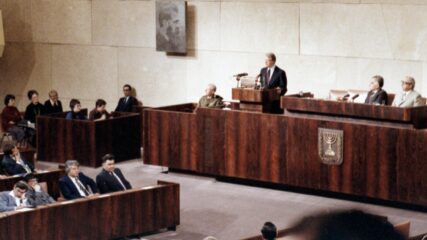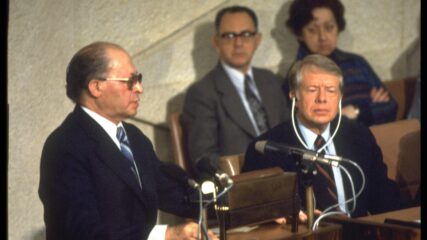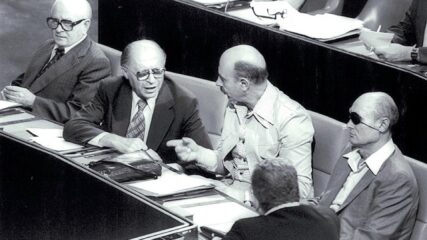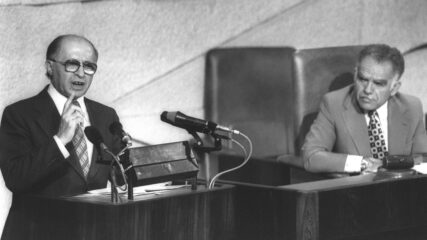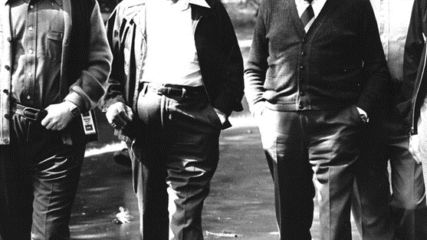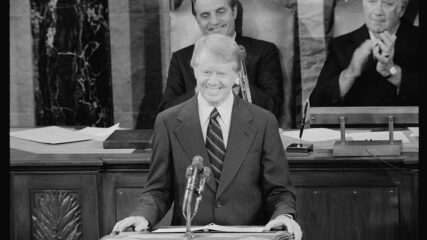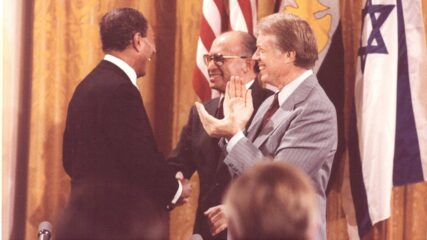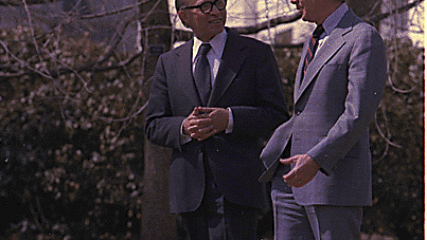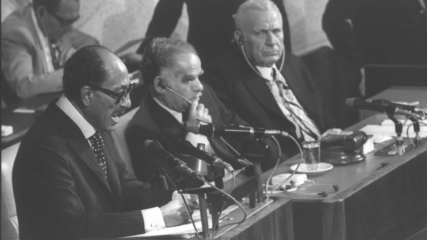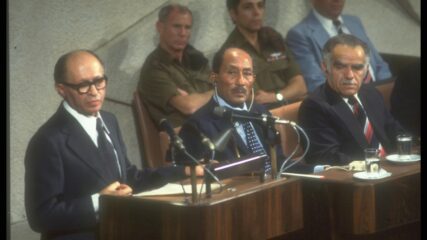U.N. Security Council Resolution 446: Territories Occupied by Israel, 1979
Carefully sandwiched between Carter’s high-risk presidential visit to Egypt and Israel on March 10, 1979—to solve contentious disagreements between Sadat and Begin—and the Peace Treaty signing on March 26, 1979, his administration gladly votes at the UN to deplore Israeli settlement building; including demographic changes in Jerusalem. After the Peace Treaty signing, until it leaves office in 1981, the Carter administration will continue to barrage Israel with condemnation for settlement building.



